
by Lural Ramirez | Jan 22, 2019
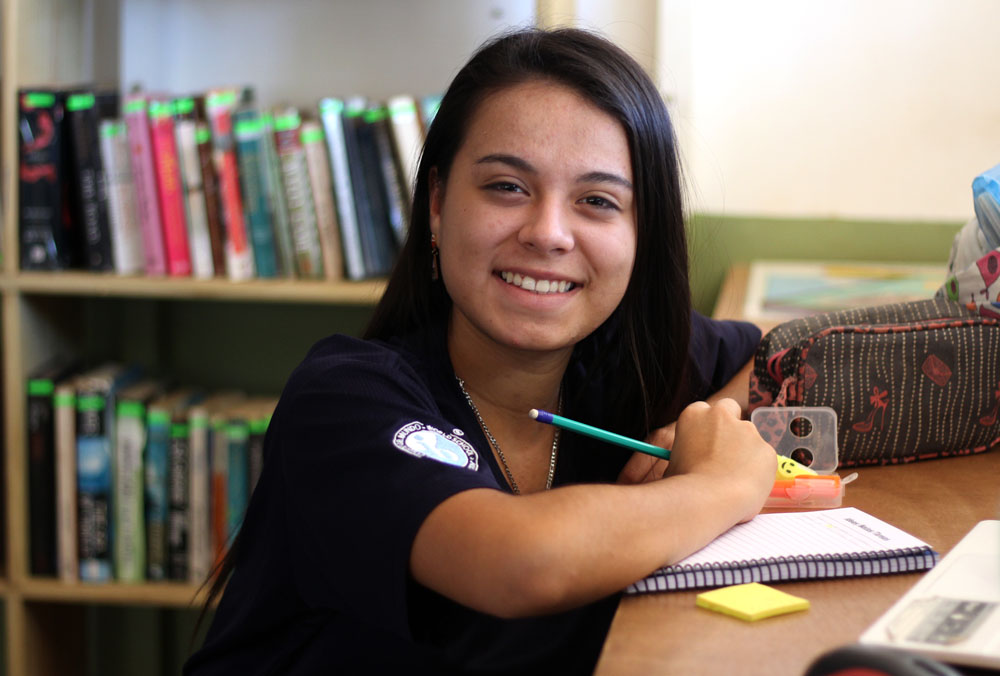
Aren’t all schools the same? Or, if they are different, they can’t be THAT different, right? I have heard comments like these so many times in my 16 years as a teacher and an administrator.
Futuro Verde is accredited by the Ministry of Public Education (MEP) here in Costa Rica and we are authorized to offer the Diploma Program (DP) as an IB World School. We then choose to align all our grade levels- preschool, elementary and middle school to the IB way of teaching and learning in our DP program. The philosophical groundings of MEP and IB could not be more different from one another- quite literally they are nearly polar opposites. Both ways of learning can get you a high school diploma, but did you know that the IB philosophy does something for students that a traditional MEP education simply does not provide? But what is this difference, you ask?
IB: Guided by a Holistic and Inquiry-Based Education
An IB education is grounded in inquiry and constructivism and is built strongly on a curricular structure that requires students to be critical thinkers and active participants in their learning. Unlike in traditional contexts, IB teachers are guides on the side, not sages on the stage. IB teachers are also entrusted with their own curriculum development. This makes each IB course unique in every school as teachers develop and create their curriculum to match their students’ needs and interests and their specific school context. This pedagogical freedom requires teachers to be smart, creative and excellent models of the critical thinking they then seek in their students.
The other impressive hallmark of an IB education is its commitment to the holistic development of students. So many educational systems, including MEP, place ultimate importance on only a few basic, academic subjects and they do so at the expense of holistic development. IB is dramatically different in this sense! In the DP, the three requirements that make up the core studies for a student are not even any of the basic, academic subjects. Without fulfilling the core successfully, students do not achieve an IB diploma! Core IB classes are: Theory of Knowledge (TOK)- a two-year course designed to critically analyze how we know what we know; Creativity, Activity and Service (CAS)- a course that requires students to be balanced- to be physically active, to try new things, to serve others and to explore their creativity; and finally, Extended Essay (EE)- which is essentially a 4,000 word mini-thesis, written on a topic of the student’s choice. This commitment to core abilities like social connection, critical thinking and research and written expression make IB’s core elements a fantastically holistic graduation requirement!
The final element of IB that is firmly committed to holistic development comes from the final requirements for graduation- passing grades in all of the basic, academic subjects AND in the arts! Gone are the days that students can be so narrowly focused. IB develops in students a liberal arts inspired approach to teaching and learning, leaving students, parents and teachers alike to fully embrace the notion that ALL student learning is equally important, not just success in basic, academic subjects!
As you can see, an IB education is drastically different from a traditional model of learning and, in our modern society focused on 21st Century Skills, the IB provides students with the advantage they need in high school in order to set them up for the most successful university experience possible!
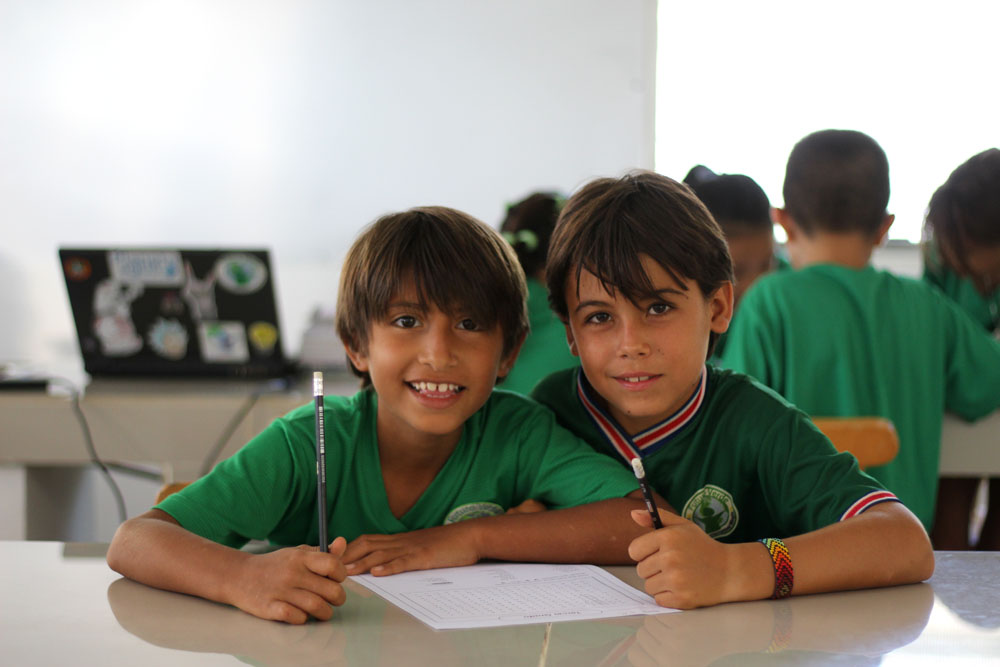
by David Brookshire, MPH/ School Counselor & Special Education Case Manager | Jan 20, 2019

With the excitement of beginning a new school year, transitions can also sometimes be challenging. Getting up earlier, going to bed earlier, new teachers, new experiences….while all positive things, can sometimes be a little bit stressful as we adapt. With new experiences and expectations on the horizon, it can be helpful to embrace some routines at home for added structure and peace of mind as we get ready for the new year. With a few basic practices, routines can help the whole family. A routine is simply a sequence of actions followed regularly that helps everyone know who should do what, when, in what order, and how often. The following are some examples of routines that can help everybody adjust to a new schedule.
To prepare for coming back to school, it is beneficial to begin waking up at a regular time each day. This helps our bodies establish a natural rhythm that makes it easier to adjust once the school year begins. By getting in the habit of waking up at a certain time, getting ready for the day, and eating breakfast, etc., we adapt to change with more ease and less stress.
Getting in the habit of what happens after school can also provide ease to the flow of the afternoon. Having a snack, doing some homework, or finishing chores are all examples of ways to establish structure in the afternoon.
By having dinner together as a family, we strengthen family relationships and provide a space for bonding. Also, with a regular bedtime and set of tasks for getting ready for bed, it’s easy to know what to expect and can provide cues for a body and brain that it’s time to begin resting. Practicing this regularly makes it easier to avoid stress and conflict when we begin a new school schedule. Getting enough sleep becomes a priority so we can be our best during the day.
Routines can provide a lot of benefits for children and adults. One of the most relevant benefits of routines is the creation of safety and predictability. An organized schedule provides children with a sense of safety because it is easy to know what to expect. The predictability of routines reduces stress and takes the guesswork out of getting ready because children regularly know what to expect. When children know what is expected and practice it regularly a sense of responsibility is gained that can boost confidence and make it easier for them to take safe, healthy risks as they face daily challenges. A sense of responsibility is an excellent benefit of establishing predictable routines. And finally, by establishing regular routines and making them a habit, we save time and allow space in our schedule for other activities.
When routines are established and practiced regularly we, as parents, feel good about providing our kids with a sense of accomplishment and responsibility. We save time, avoid conflict, and strengthen family bonds. This helps all of us make the transition as we enter the new year.
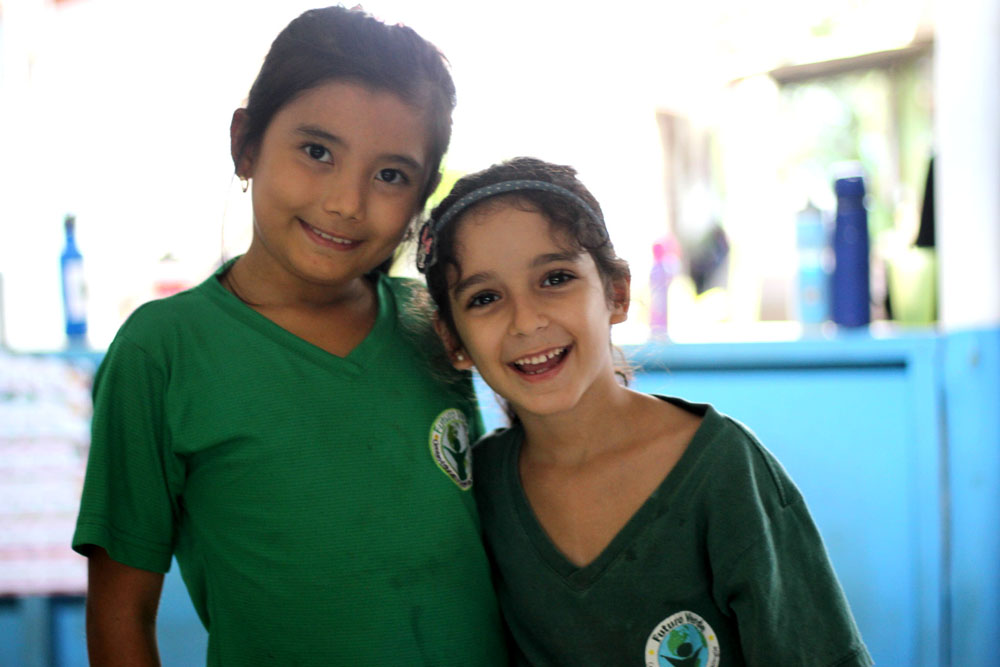
by Lural Ramirez | Jan 18, 2019

Welcome to the 2019 school year! On behalf of the Futuro Verde board of directors, our amazing team of teachers, our dedicated leadership team and our incredible support and auxiliary staff we welcome you to this new school year and thank you for joining us on this educational journey at our loving, IB World School!
Below you will find important details as you help your student(s) have the best beginning of the year possible!
School Supply Lists: Click the link below for access to our 2019 school supply lists! Thank you for fulfilling your child’s full supply list!
Supply List
Uniform policy: Please find below our school uniform policy, which has no changes from last year to this year. Uniforms are in stock and for sale at the school office. A reminder that uniform shirts have a cost of: ₡8,000 and PE uniforms (shirt and shorts) have a cost of: ₡12,500
2019 FV Uniform
2019 Student/Parent Handbook: Click the link below to read our updated 2019 school handbook! There are important policies in the handbook regarding topics including absences, curriculum, discipline policies and more. Please assure you read the handbook in full and review it with your child. Thank you!
School Handbook 2019
Get involved!: We are starting a formal FV Parent’s Commission for the first time this year! Are you a parent interested in becoming more involved with the school? Do you love helping with school events and fundraisers? Are you interested in helping make fun and exciting things happen at Futuro Verde? Well, then our FV Parent’s Commission might be just the group for you! Click on the link below to indicate your interest to get involved and our FV Parent’s Commission organizers will be in touch!
FV Parents Commission
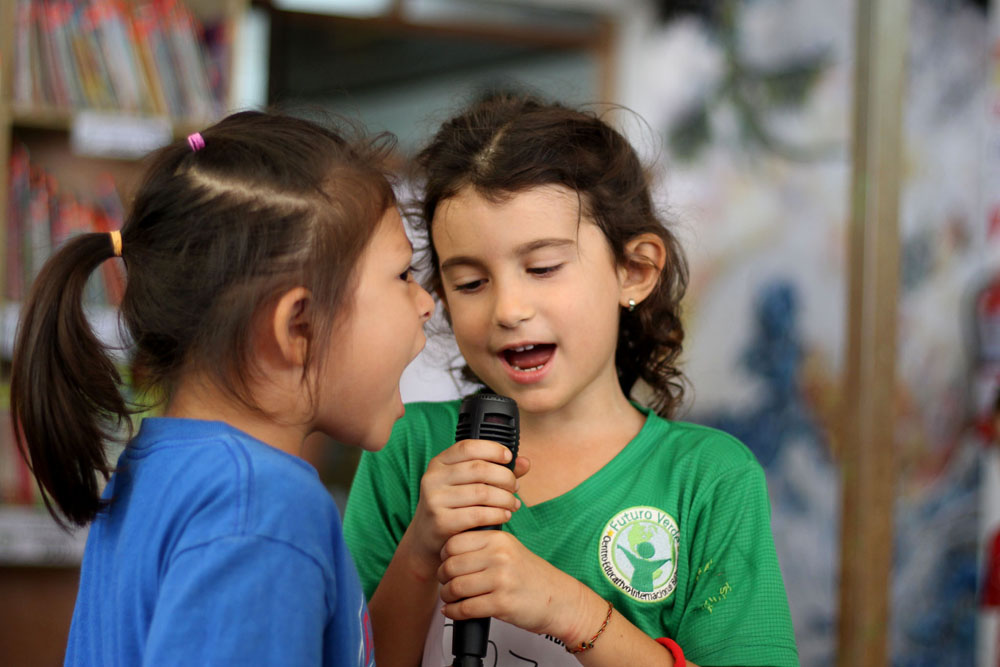
by Noelia | Jan 18, 2019

Welcome to a new school year! 2018 was an exciting year of growth full of events and activities for our school and we are looking forward to all that 2019 will bring! Stay tuned for all our fun and interesting activities and events planned for this school year and check out our 2019 calendar in the link below for the main important dates and holiday schedules. Remember- this same calendar is always available on our website as well!
2019 FV Calendar
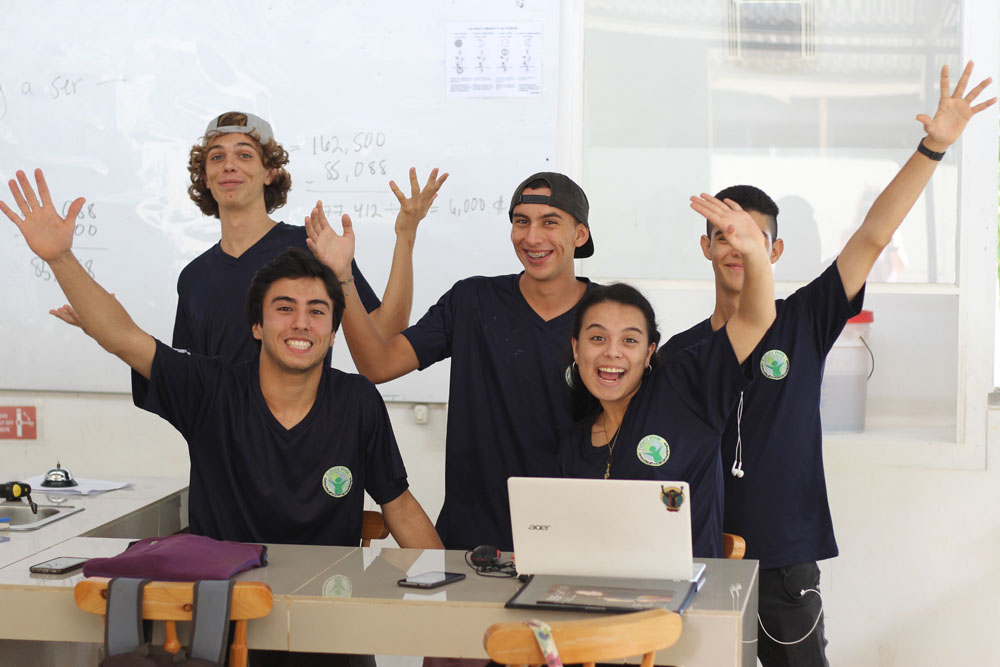
by Stuart Millar, IB coordinator | Nov 21, 2018

We are looking forward to another first as we celebrate a decade of Futuro Verde, our first year of twelfth grade! Some of the students might not be sure why that is something to celebrate, but one of the best things for the teachers and staff is that we don’t have to say goodbye to the students just yet! They have another year to prepare themselves for university or whatever comes next, and our younger students have another year to benefit from their maturity and learn from the good examples they set.
Twelfth grade means more than just a change for the students who normally would have graduated after their national exams at the end of 11th grade. This progress positively impacts our enrollment, there will be some exciting changes for some our teachers and administrators, and we will be examining how to make the most effective use of our learning spaces.
This is an exciting new chapter in Futuro Verde’s history and we look forward to keeping you informed about the progress of our seniors throughout the year.
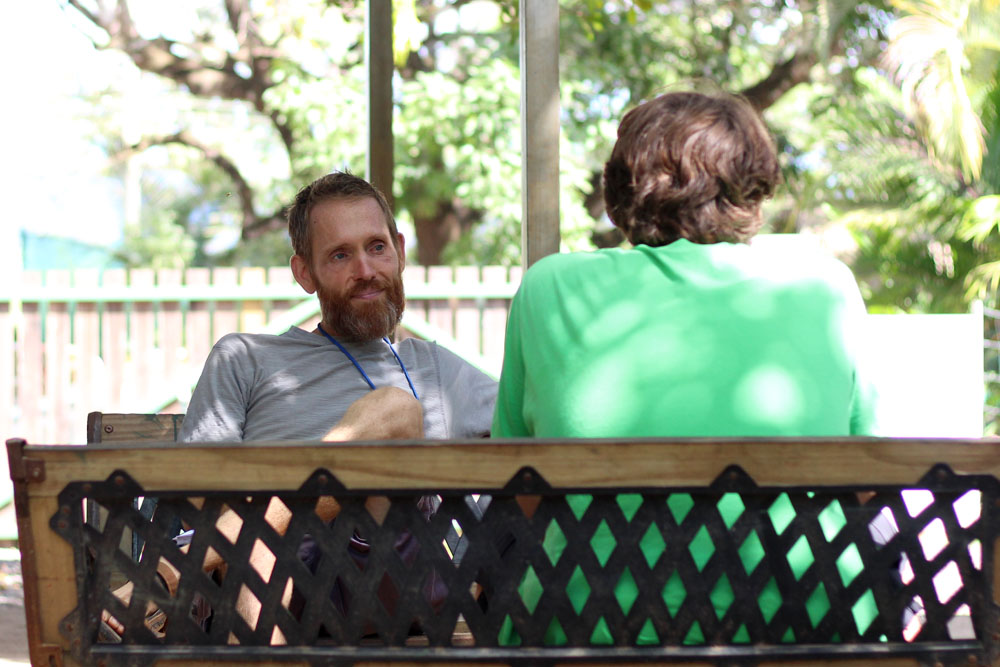
by David Brookshire, MPH/ School Counselor & Special Education Case Manager | Nov 18, 2018

With a holistic approach to learning and growth, it’s often important to support the emotional needs of children as they go through different ages and stages of life. At Futuro Verde we emphasize character education, social emotional learning, and access to counseling as ways to support the unique needs of every student. This allows every student to acquire emotional intelligence in addition to academic skills. As a result of this approach, students become self-aware individuals able to make responsible decisions, resolve conflicts, and manage their emotions.
Sometimes, as problems arise, children may need additional support as they tackle some of life’s challenges. This is where counseling can be very beneficial. Building a rapport with a neutral counselor, can allow children to open up about what’s troubling them. Through conversation and activities, this can help them identify and express emotions as they broaden their perspective through confiding in a counselor. This is very helpful in reducing stress, increasing self esteem, and building healthy relationships.
There are also ways for parents to support social emotional learning and growth at home. Being a good listener, for example, is an easy way to build this core competency in our children. This helps them become good listeners themselves, especially when it is modeled for them. Modeling is an excellent way to support emotional development because our choices and actions have a huge impact on our children. Be conscious about what values you hold as a family and carefully making choices aligned with those values is an excellent way to reinforce learning. Nurturing self esteem, giving age appropriate choices, and showing appreciation are also excellent ways to develop character at home.
Whether at home, through character education and social emotional learning our with the help of a counselor, it takes a village as we support every child as they learn and develop. Challenges are inevitable but with healthy coping skills, self esteem, and additional support when needed, our students are becoming self-aware, resilient individuals as they continue to learn how to engage with those around them in meaningful ways.








